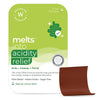If you frequently struggle with acidity, bloating, or digestive discomfort, you’re not alone. These common issues can interfere with daily life, leaving you feeling sluggish and uncomfortable. Fortunately, digestive enzymes play a crucial role in supporting gut health by improving food breakdown and nutrient absorption. They can help ease symptoms like acid reflux and bloating, promoting smoother digestion. But how exactly do they work? Let’s explore their benefits and how they contribute to better digestive health.
Understanding Digestive Enzymes and Their Role
Digestive enzymes are natural substances produced by our bodies to break down food into absorbable nutrients. They help process carbohydrates, proteins, and fats, ensuring smooth digestion. However, factors like aging, stress, poor diet, or underlying health conditions can lead to enzyme deficiencies, causing digestive distress.
When your body doesn’t produce enough enzymes, undigested food can ferment in the gut, leading to bloating, gas, and acid reflux. This is where supplemental digestive enzymes come in—they enhance digestion and help prevent discomfort.
How Digestive Enzymes Help with Acidity and Bloating
Acidity Relief
Acidity occurs when stomach acid flows back into the esophagus, causing heartburn and irritation. While antacids provide temporary relief, they don’t address the root cause. Digestive enzymes support proper digestion, reducing the likelihood of acid buildup. Key enzymes that aid in this process include:
-
Amylase, Protease, and Lipase – Help break down food efficiently, preventing excessive acid production.
-
Papain (from papaya) & Bromelain (from pineapple) – Assist in protein digestion, minimizing stomach stress and naturally reducing acidity.
-
Betaine HCl – Helps maintain optimal stomach acid levels, preventing reflux caused by low acid production.
Bloating Relief
Bloating is often caused by undigested food fermenting in the gut, leading to gas buildup. Digestive enzymes improve digestion efficiency, ensuring proper food breakdown and absorption. Key enzymes for bloating include:
-
Lactase – Helps digest lactose for those with lactose intolerance.
-
Alpha-galactosidase – Assists in breaking down complex carbohydrates found in beans and cruciferous vegetables, reducing gas formation.
-
Broad-spectrum digestive enzymes – Support overall digestion and prevent fermentation in the gut.
Lifestyle Changes for Better Digestion
While digestive enzymes can work wonders, combining them with healthy habits enhances their effectiveness. Here’s how you can support your digestive health naturally:
-
Eat Smaller, Frequent Meals – Large meals can overwhelm the digestive system, leading to bloating and acid reflux.
-
Consume Enzyme-Rich Foods – Include papaya, pineapple, kiwi, and fermented foods like yogurt and kimchi in your diet.
-
Chew Thoroughly – Digestion starts in the mouth; proper chewing eases the stomach’s workload.
-
Stay Active – Regular exercise stimulates digestion and prevents sluggish metabolism.
-
Maintain a Healthy Weight – Excess weight puts pressure on the stomach, worsening acid reflux symptoms.
-
Stay Hydrated – Drinking enough water supports enzyme production and smooth digestion.
-
Manage Stress – Stress can disrupt enzyme production; practices like deep breathing, meditation, and yoga can help.
-
Get Enough Sleep – Poor sleep can disrupt digestion and contribute to acidity and bloating.
-
Limit Alcohol and Caffeine – Both can irritate the stomach lining and trigger digestive discomfort.
-
Avoid Trigger Foods – Reduce intake of spicy, fried, and acidic foods that aggravate acid reflux.
Conclusion
Digestive enzymes play a vital role in breaking down food and preventing common digestive issues like acidity and bloating. If you often experience acid reflux or feel bloated after meals, adding a high-quality digestive enzyme supplement to your routine can provide relief. Combined with a balanced diet and mindful eating habits, digestive enzymes can be a powerful tool to support optimal digestion and overall well-being.
































 DOWNLOAD NOW
DOWNLOAD NOW
